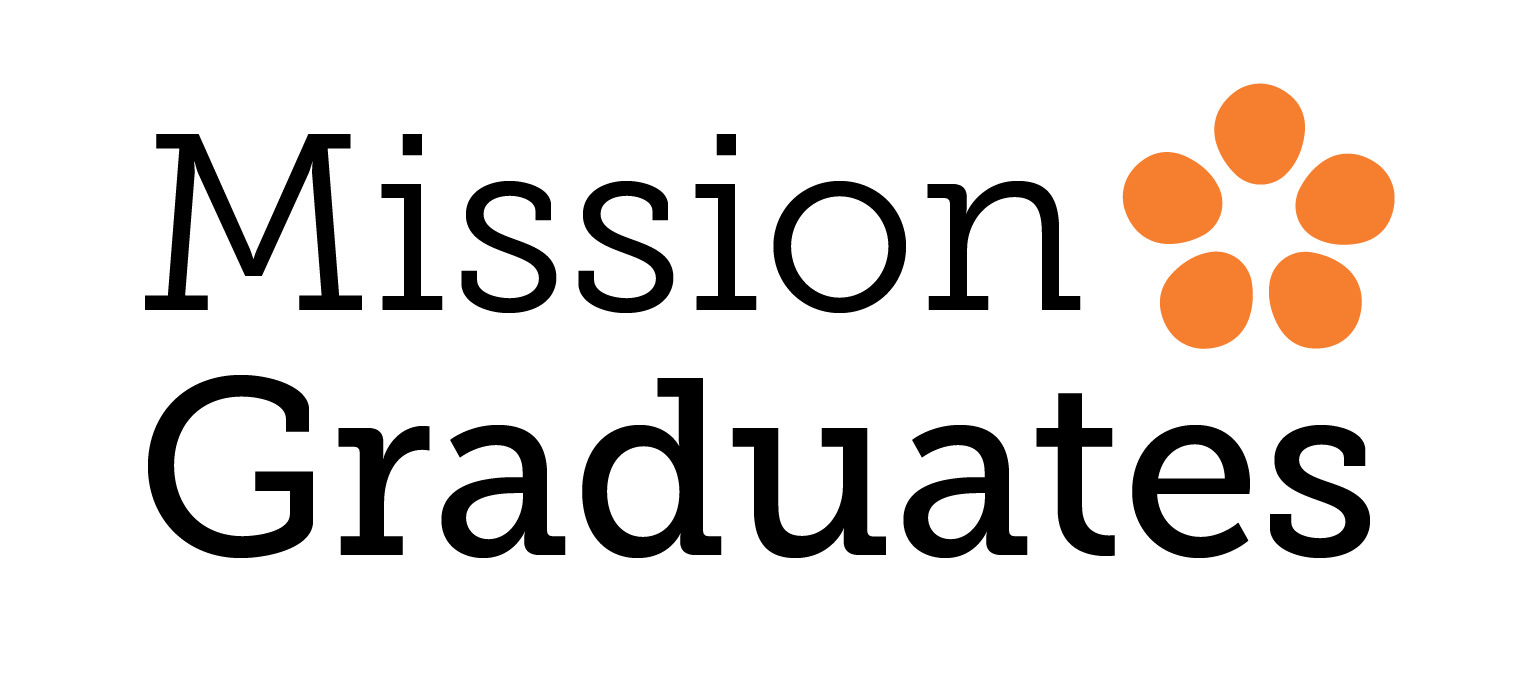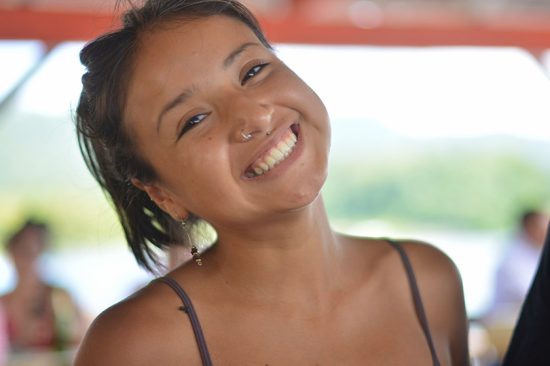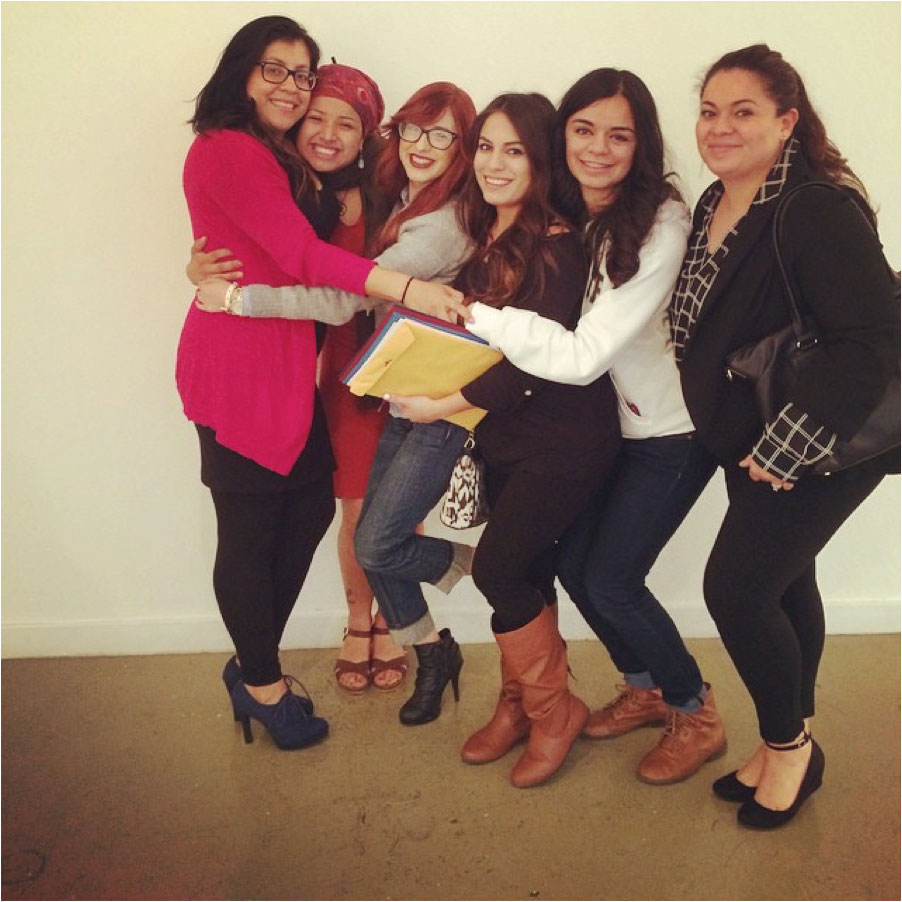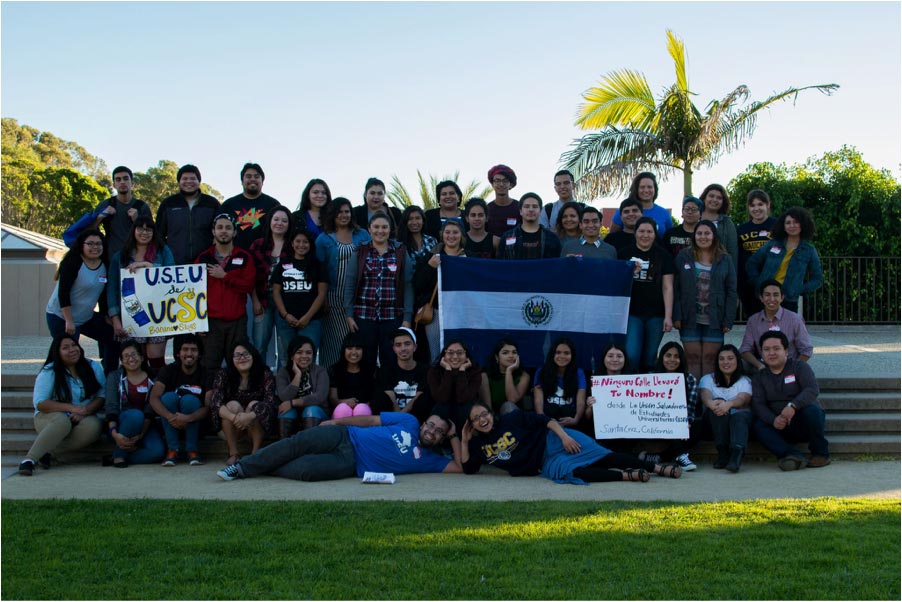Meet College Connect student Joanna Beltrán Girón. She is currently finishing up her second year and University of California Santa Cruz. She is enjoying her time at UCSC as an Intensive Psychology major. Here is some of Joanna’s best advice for incoming students.
Question: What is the most valuable experience you’ve had at your school?
Answer: The most valuable experience I have had at UCSC has and is building relationships with my professors while keeping in touch with two of my high school teachers.
Q: What’s the biggest tip you would give to incoming (or current) college students?
A: What I strongly encourage incoming and current college students is take independent study or field study courses. Not only will you get to design your own syllabus based on what you are passionate about, but it is a great opportunity for faculty to get to know you at a personal level, and the other way around.
Q: Where have you gotten the most support since you started college? How did they help you?
A: I have gotten support from many different people and organizations. Personally, professionally and academically, I have found support from two high school teachers whom I check-in with at least twice every two quarters; and in faculty from different departments: the Community Studies, Latin America and Latino Studies, and Sociology Departments. Emotionally and organizationally, I have found support in the Salvadoran Student Movement, all of them who keep me grounded to my life goals, and passion for social justice. Emotionally, my mom and dad have been amazing parents! They are both open minded to my sexuality and career goals. Their acceptance and understanding to who I am encourages me to love myself, even while living in a capitalist society that teaches women of color how to hate their history, struggles and their bodies. Finally, scholarship programs like Mission Graduates, Meritus College Fund, and Chicana Latina Foundation have provided me with emotional, mental and spiritual support. I am very humbled and grateful for mi arbolito de apoyo.
Q: How have you gotten involved in your school?
A: My first year I became involved with the Salvadoran University Student Union (USEU-Spanish acronym). In USEU we encourage active involvement and critical thinking in issues that affect the Salvadoran community in El Salvador and in the diaspora. I became Chair of the organization, and although organizing is tough I definitely enjoy spending time with all my comrades. We are currently organizing USEU’s 7th Annual Statewide Conference where we seek to create spaces of counter-hegemony that will lead us to understand the intersectionalities between Ferguson, Palestine, Honduras, Puerto Rico, México and El Salvador. Our cultural, social, economic and political issues are deeply rooted in our history of imperialist, capitalist and neoliberalist oppressive regimes. Also while a freshman, I did an internship with El Centro from the Chicanx Latinx Resource Center where I have received amazing support from Director, Dr. Judith Estrada, and all El Centro interns. Being an intern opened doors for me: I got to build a network of amazing Chicanx and Latinx students (and learn from their passions), and learned about myself in terms of what I can offer in collective planning. I am currently a volunteer at the CLRC. I have had the honor to perform a poem – in Spanish – at El Centro’s Annual Dia de Lxs Muertxs, and have also documented El Centro’s Anual Pachanga, an open dance that cherishes AfroLatinx culture. I have found a community by getting involved on campus.
Q: What was the hardest part about going to college?
One of the main challenges I have had at UCSC is learning about white privilege. I do not wish to build resentment and generalize all white people as
- Coming from affluent backgrounds
- Being culturally-insensible
- Holding prejudices about Latinxs, and my African American and immigrant sisters and brothers
- Not knowing what’s like to get arrested because of cops’ suspicion of drug possession (although research shows that whites consume far more drugs than Latinxs and African Americans, and yet Latinxs and African Americans are far more likely to get arrested for it).
My point is: getting a college education has taught to me think differently about the community I come from, and the societies and world we live in. My hardest struggle has been to keep truth to myself and my ancestors’ fight for social justice without generalizing white people as all the same. However, I’ve known a few white women who are the difference, and I just wish there were a lot more like them.
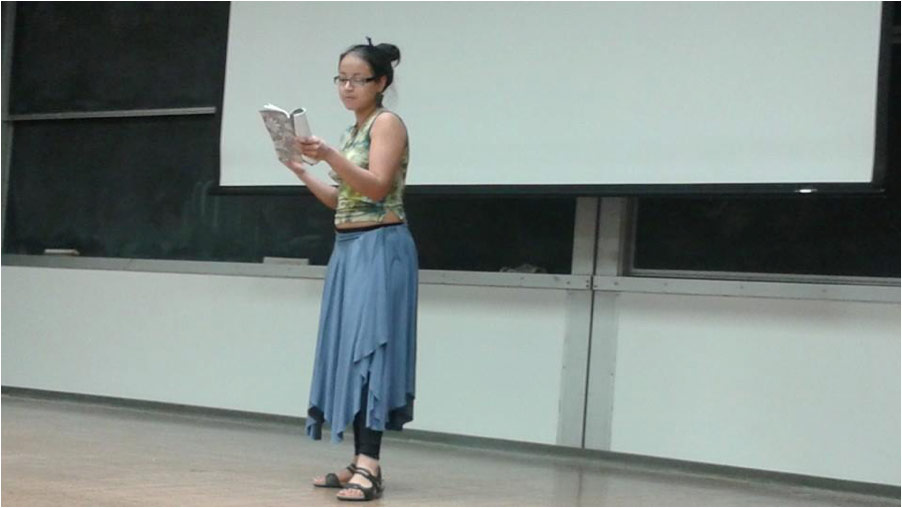
Performing Spanish poemas at USEU’s Anual Statewide Retreat at UC Santa Barbara from a collection of poems I wrote while in USEU’s Study Abroad Program to El Salvador in the Summer of 2014
¡Arriva El Salvador!
Thank you Joanna for your time. You are doing amazing things at UCSC, keep it up!
